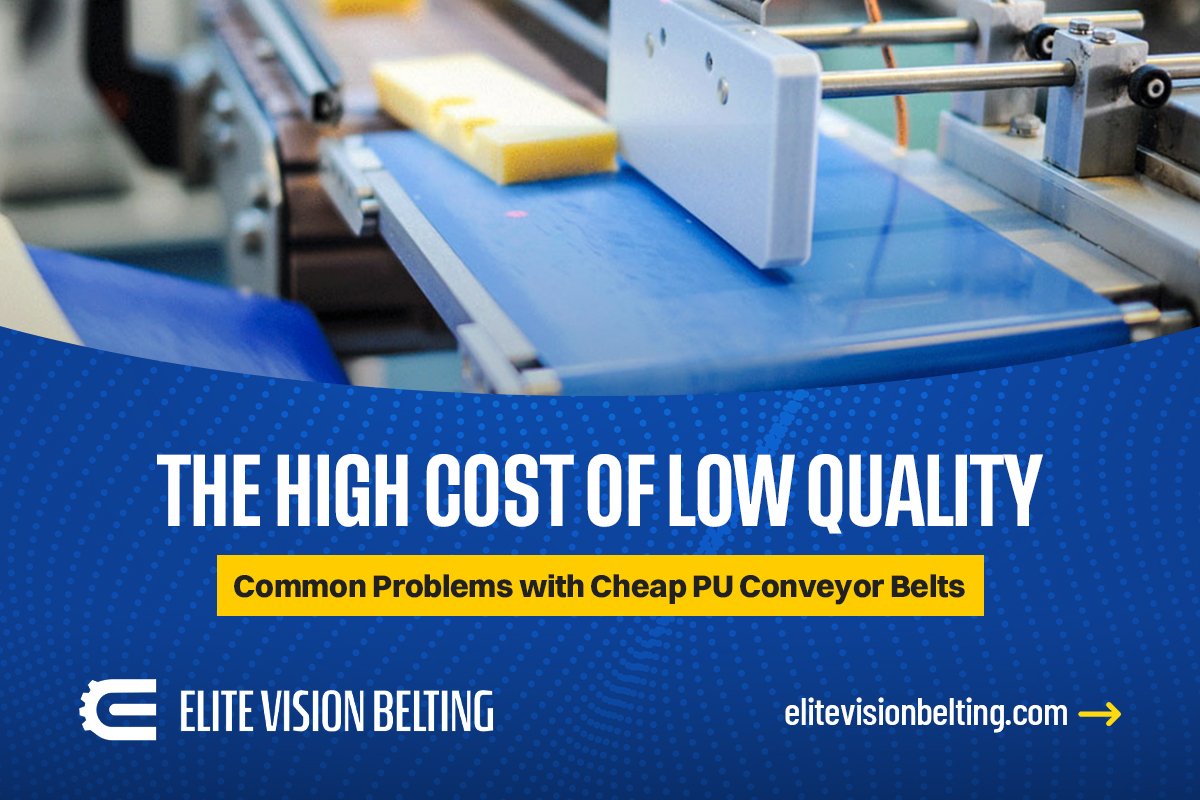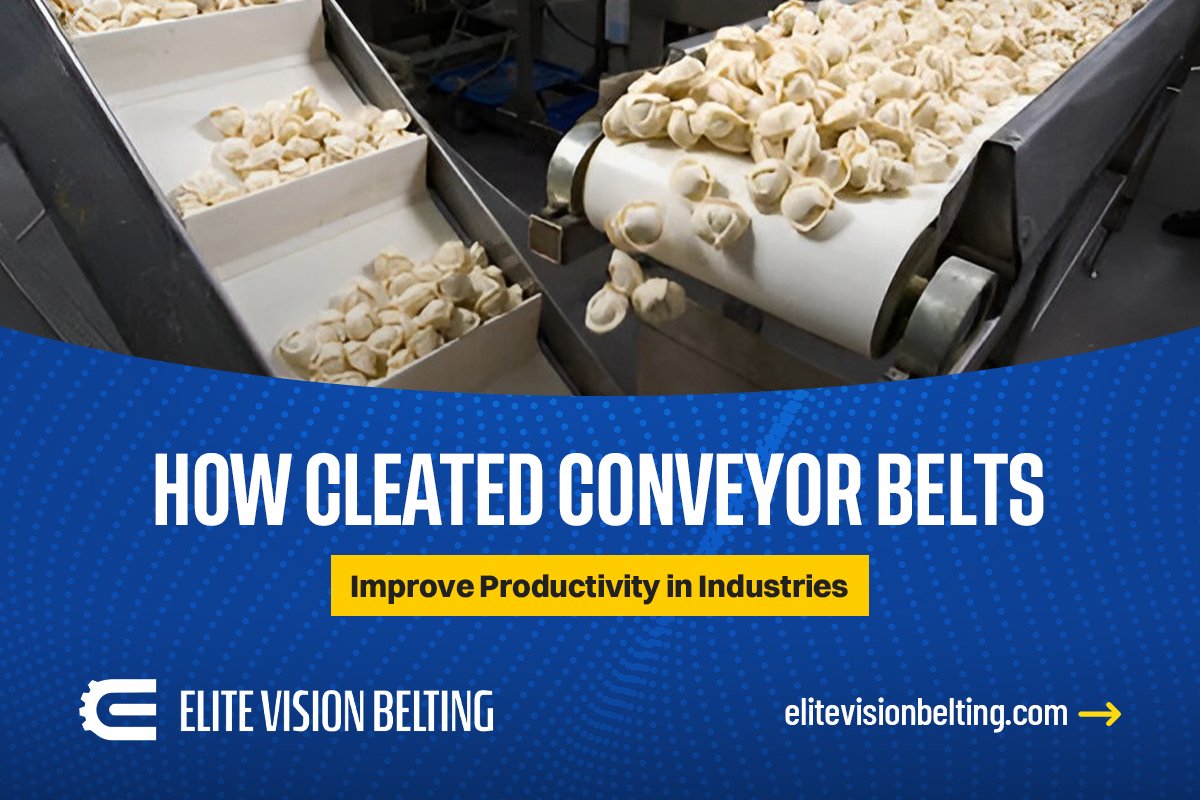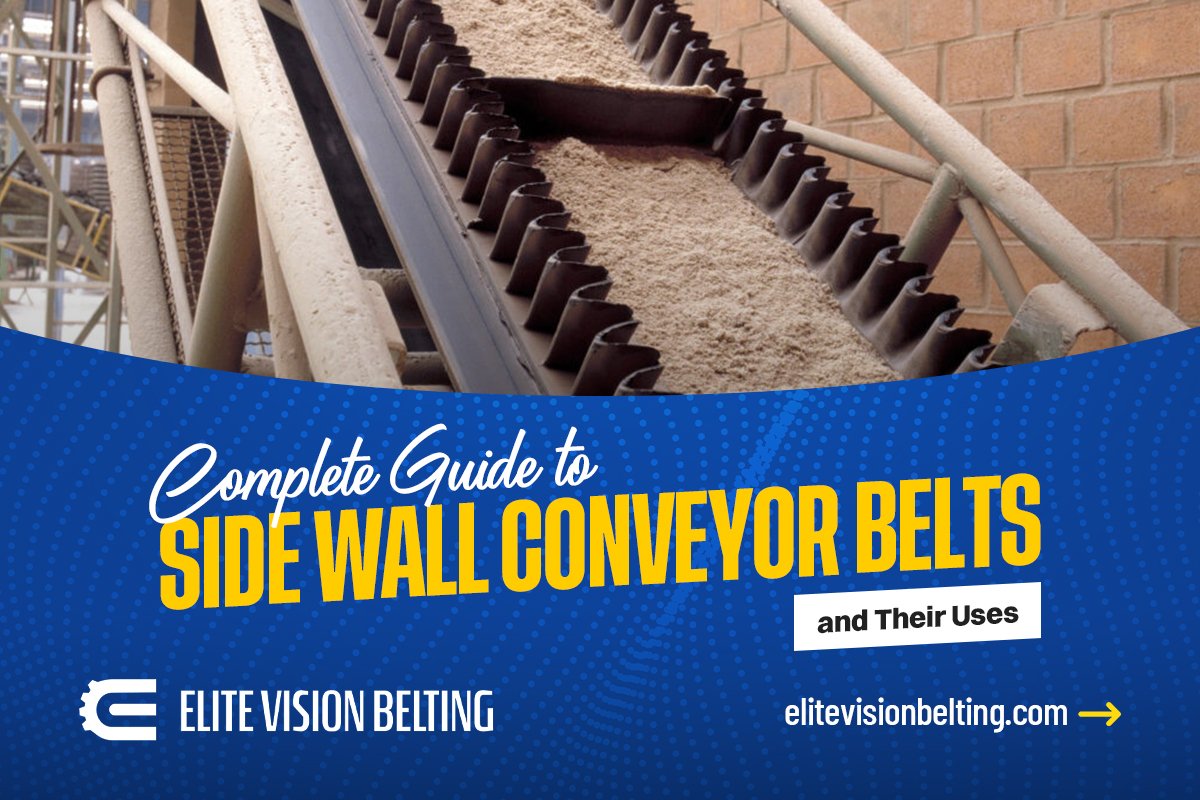While working in the food processing business, chiefly meat, poultry, and dairy businesses, the utmost level of hygiene is necessary. Conveyor belts are a important component in providing the safe, efficient, as well as hygienic as well as clean transportation of goods along production lines. The building materials for conveyor belts are indispensible in terms of satisfying food safety requirements, and one of these materials has gained much popularity over the years, and that is Polyurethane (PU). FDA-approved PU conveyor belts are now the go-to answer and the clarification for meat, poultry, as well as the dairy processing where cleanliness as well as safety become key priorities.
Understanding the Role of Conveyor Belts in the Food Industry
Conveyor belts are used in the food processing business to transport raw materials as well as processed food. Meat, poultry, as well as the dairy factories apply these belts to transport goods from one processing step to another, i.e., cutting, grinding, packaging, as well as storage. As such industries enjoy a high risk of contamination; the belts also have to be sanitary, durable, in addition to capable as well as the proficient of lasting and the persistent harsh cleaning as well as sanitizing regimens.
Hygiene Challenges in Meat, Poultry & Dairy Processing
The poultry, meat as well as dairy sectors have several types of hygiene issues. Such types of foods are disposed to varioys bacterial contamination by the harmful pathogens, like Salmonella, E. coli, as well as Listeria, which cause the diseases or illness related to foodborne. The conveyor belts in such an environment should be made in a way that such types of risks are evaded as well as the belts is easy to clean without any bacteria, food residue, or moisture. Any soiling of the belt can quickly be transmitted to the product, prominent to likely soiling of the whole production line.
Why Food Conveyor Belts Are a Critical Component in Hygiene
Conveyor belts are in direct contact with the products being processed, and therefore, should adhere to high hygiene standards. The conveyor belt material used helps to prevent the accumulation of contaminants as well as be cleanable to ensure sanitary conditions along the entire processing line. Fabric or the metal materials usually used for conveyor belts tend to lack these requirements in addition to are not as ideal for food processing systems where hygiene is paramount. This is where FDA-approved PU conveyor belts shine as the best answer.
FDA-Approved PU Conveyor Belts: The Ideal Choice
Polyurethane conveyor belts, particularly FDA-approved ones, are generally the best in the market for use in the meat, poultry, as well as dairy sectors. The reasons below are why FDA-approved PU conveyor belts are the best choice for these industries:
1. Smooth and Non-Porous Surface
PU conveyor belts entail of a non-porous as well as smooth surface as well as therefore do not absorb food residues or water. This makes them easy to clean and sanitize without forming bacteria that are disease-causing. Contrasting other materials, such as rubber or fabric, PU belts do not have minute pores where bacteria or mold can grow. This removes the surface non-porous, and hence residue on the belt can be easily washed away during the routine cleaning.
2. FDA Approval of Food Safety
FDA-approved PU conveyor belts are manufactured under strict guidelines issued by the U.S. Food and Drug Administration so that they are of the highest standards of safety to be used in food processing. The belts are manufactured with materials that are safe to be in direct contact with foodstuff, as well as this is very important in applications where cleanliness is not a choice. FDA approval ensures that the belts will not contaminate the foodstuff that is being processed, giving manufacturers a clear conscience about food safety.
3. Resistance to Oils, Fats, and Chemicals
In the processing of meat and poultry and dairy use, the conveyor belts are exposed to oils, fats, and other by-products that can easily ruin inferior belt materials. PU belts are oil and fat-resistant, therefore they are ideally suited for these uses. PU conveyor belts also resist a wide range of cleaning chemicals, as well as the belts stay in top condition even after repeated wash-downs with aggressive cleaning materials.
4. Strength and Durability
FDA-approved PU belts are durable and long-lasting. They are strong to wear and hence ideal for heavy-duty production lines. In meat as well as poultry processing plants, where heavy loads are being transported through the conveyor system, PU belts can provide the strength needed to withstand continuous use without wear as well as tear. This enables production lines to operate smoothly with minimal or zero stoppage for maintenance as well as replacement.
5. Temperature Resistance
The meat, poultry, and dairy food processing sector is generally exposed to extreme temperatures. From frozen storage to cooking or pasteurization, PU belts can resist a wide range of temperatures without affecting their performance. This temperature resistance allows the belts to perform at their optimum throughout different stages of food production, thereby a perfect fit for all production conditions.
6. Easy Maintenance and Cleaning
One of the biggest benefits of FDA-approved PU conveyor belts is that they are simple to maintain. The belts are simple to wash, with little time required for sanitizing. Washdowns as well as water cleaning, detergents, or other cleaning agents on a regular basis keep the belts free from bacteria and contamination. The simplicity of cleaning safeguards high hygiene standards in food processing facilities in addition to avoids the accumulation of dangerous residues.
Long-Tail Benefits of PU Belts for Sanitary Meat and Dairy Processing
Where particular uses in meat and dairy processing are in question, FDA-approved PU conveyor belts yield particular advantages. PU conveyor belts are highly efficient for conveying dairy as well as meat products in a sanitary and safe manner. Certain advantages of the use of PU belts in such industries are as follows:
1. Meat Processing
Meat processing plants tend to be highly susceptible to adulteration because of the product's nature and handling. PU belts are a clean and a hygenic solution since they do not allow dangerous bacteria to stick to the belts while making them. The belts also guarantee that the transfer of contaminants from one product to another is minimized, thus greatly reducing the chances of cross-contamination.
2. Poultry Processing
PU belts are working in poultry processing to carry live poultry as well as processed items such as chicken cuts. PU belts have a non-porous, smooth surface that does not trap feathers, blood, and other residues, which can be the cause of contamination. PU belts are acknowledged and is recognized by the FDA provide poultry processors with the ability to keep their conveyor belts clean and free of pathogenic bacteria, which ensures product safety and quality.
3. Dairy Processing
Conveyor belts are also employed in dairy processing facilities to carry dairy products such as milk, cheese, and yogurt from one stage of production to the next. PU belts are appropriate for such use since they do not absorb dairy residues as well as therefore do not support the growth of bacteria. PU belts offer resistance to dairy fats, which otherwise destroy belt materials. PU belts are made to carry dairy products along production lines without the risking contamination.
Conclusion
In this highly regulated, hygiene-sensitive meat, poultry, as well as the dairy processing environments, the selection of conveyor belt materials is significant and the most important part to maintain the food quality and safety. FDA-approved polyurethane belts are the best choice for such environments, providing maximum hygiene, durability, as well as resistance to oil, fat, and chemicals. Their non-porous, smooth surface allows easy cleaning as well as sanitizing; along with their heat and strength resistance guarantee that they are capable of handling high-volume food production. When meat, poultry, and dairy processors opt for PU conveyor belts, they can safeguard stringent levels of hygiene along with minimize the chance of contamination, eventually guaranteeing the safety in addition to quality of their products.
Contact Elite Vision Belting for FDA-approved Conveyor belts in the Food Industry.





 (1).jpg)